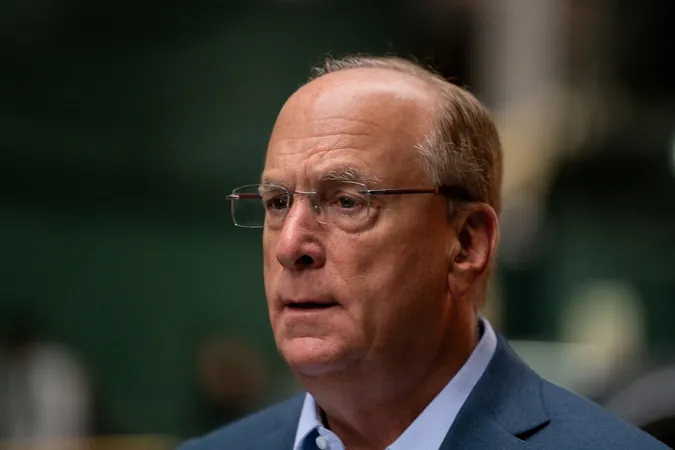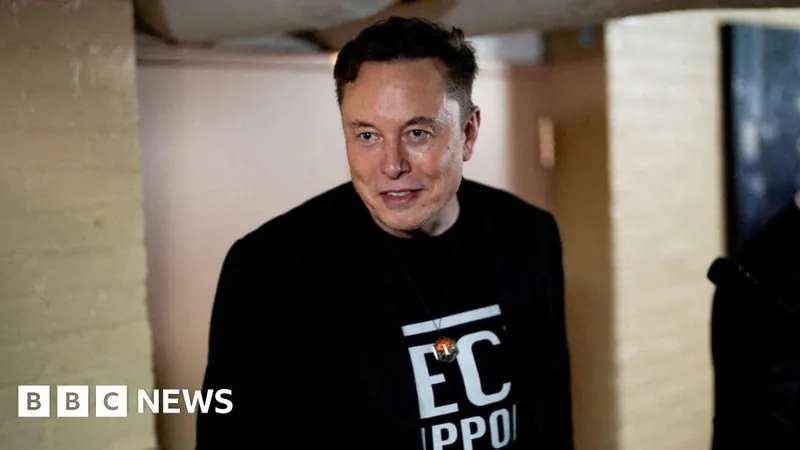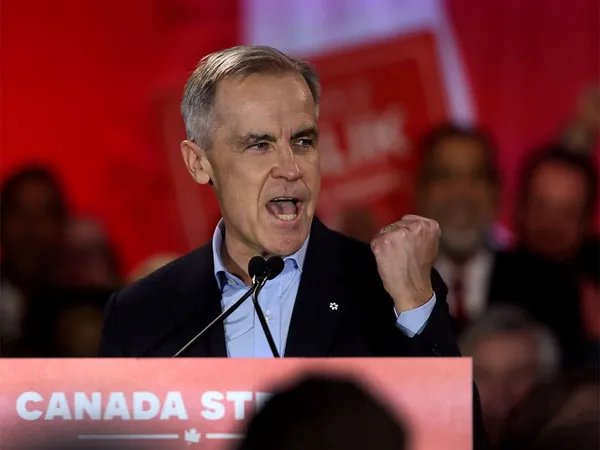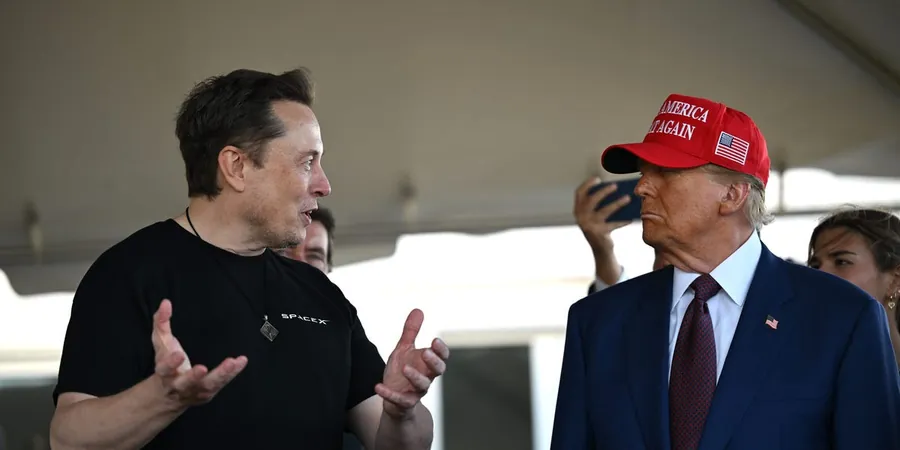
BlackRock's Larry Fink Sounds Alarm on Protectionism and Economic Inequality
2025-03-31
Author: Emma
Introduction
In a striking address, BlackRock's CEO and Chairman Larry Fink has raised alarms about a resurgence of protectionism, a trend he attributes to a widening wealth gap that is leaving many behind in today’s dual-speed economies. This alarming observation comes as policymakers grapple with rising economic anxiety, just days ahead of President Donald Trump's highly publicized tariff announcement, dubbed "Liberation Day."
The State of Capitalism
In his comprehensive annual chairman's letter, which spans around 10,000 words, Fink noted that capitalism is thriving but only for a select few while the majority continue to face severe economic challenges. His call for action centers on the idea that democratizing access to private markets, such as infrastructure and private credit investments, could offer a path to prosperity for more people.
Economic Concerns
Fink's insights into the current economic climate echo sentiments of anxiety he hears from clients, leaders, and the general public. "Nearly everyone I speak to expresses concern about the economy," he shared, emphasizing that while immediate challenges are daunting, historical trends suggest markets will rebound in the long run.
Investment Strategy
Highlighting BlackRock's position as the world's largest asset manager with a staggering $11.6 trillion in assets under management, Fink outlined his vision. He believes an expanded inclusion of private assets in investment portfolios—transitioning from the traditional 60-40 stock-bond distribution to a new mix of 50% stocks, 30% bonds, and 20% private assets—could provide investors with enhanced inflation protection and stability, albeit with increased risk.
Political Landscape
Fink's advocacy for private market access is part of BlackRock's strategy to diversify and capitalize on avenues that offer potentially higher returns, especially after the firm’s aggressive acquisitions last year, including significant investments in infrastructure and private credit firms. On the political landscape, Fink's letter tactfully avoids direct references to the current administration’s policies, even as it acknowledges a shift in the Republican party's stance towards BlackRock, sparked by its previous environmental commitments. The company recently made headlines with its agreement to acquire two strategic ports near the Panama Canal, navigating complex international trade dynamics.
Caution on U.S. Dollar's Status
Lastly, Fink delivered a cautionary note regarding the U.S. dollar's long-term status as the world's reserve currency. He warned that unchecked national debt could endanger this status, potentially giving way to alternative digital currencies like Bitcoin as viable replacements. If the U.S. doesn't regain control of its fiscal health, it risks "losing that position," he emphasized, calling for urgent attention to the nation’s financial management.
Conclusion
As global economies continue to evolve, Fink's reflections offer critical insights into the intersections of finance, policy, and societal equity, urging a collective reevaluation of how we approach wealth distribution and investment strategy. The conversation around economic equity and access to private markets is more pertinent than ever as we face uncertain financial futures.









 Brasil (PT)
Brasil (PT)
 Canada (EN)
Canada (EN)
 Chile (ES)
Chile (ES)
 Česko (CS)
Česko (CS)
 대한민국 (KO)
대한민국 (KO)
 España (ES)
España (ES)
 France (FR)
France (FR)
 Hong Kong (EN)
Hong Kong (EN)
 Italia (IT)
Italia (IT)
 日本 (JA)
日本 (JA)
 Magyarország (HU)
Magyarország (HU)
 Norge (NO)
Norge (NO)
 Polska (PL)
Polska (PL)
 Schweiz (DE)
Schweiz (DE)
 Singapore (EN)
Singapore (EN)
 Sverige (SV)
Sverige (SV)
 Suomi (FI)
Suomi (FI)
 Türkiye (TR)
Türkiye (TR)
 الإمارات العربية المتحدة (AR)
الإمارات العربية المتحدة (AR)